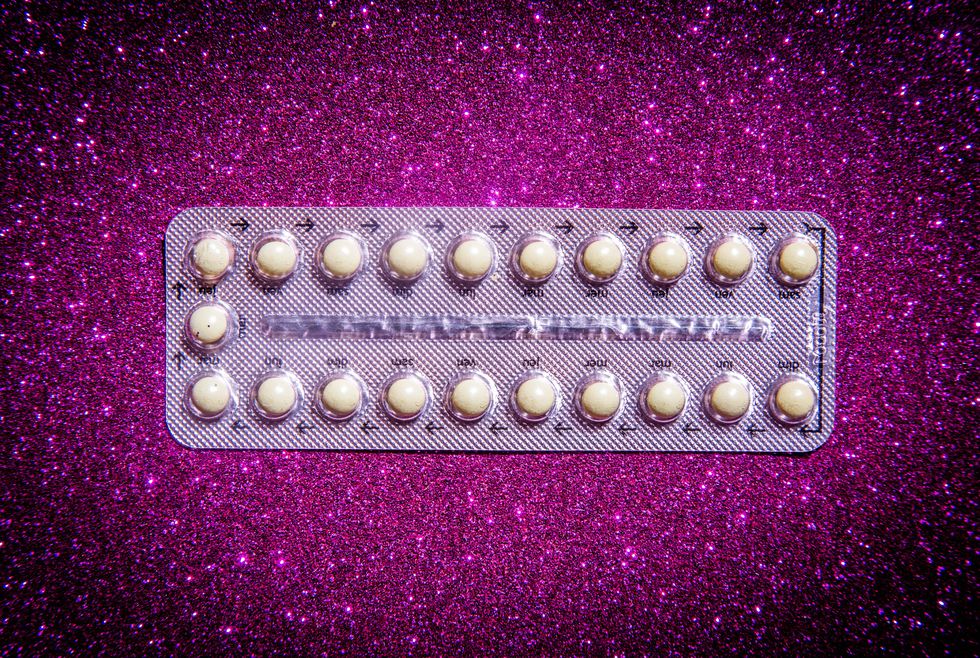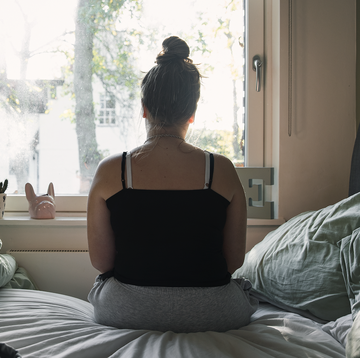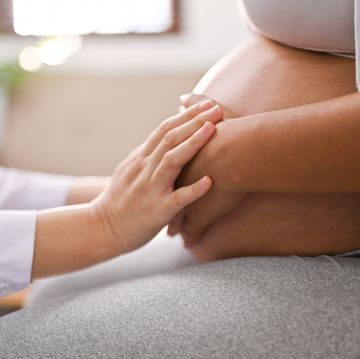You might not fancy getting pregnant right this second, but that doesn't mean women (and men, for that matter) shouldn't be informed about fertility. After spending all those teenage years trying not to get pregnant, will it really be as easy as your sex-ed teacher made out?
The chances are, probably not. Across the UK, 1 in 7 couples experience difficulty conceiving naturally during their lifetime - that's almost 3.5 million people, which is a fair chunk of the population.
By clueing ourselves up on what's going on inside those ovaries, we can adjust our expectations, so we asked Dr. Dominic Rowley, Medical Director at LetsGetChecked, to share some of the more surprising facts you might not have known about fertility:
1. Your fertility actually does decline with age
"Age is an important factor when it comes to fertility in women, and your fertility potential largely depends on your ovarian reserves (the availability of healthy eggs). As you age, your ovarian reserve decreases. This means that you have access to fewer eggs and the older you get, the poorer the quality of your remaining eggs. The challenge that many women face when choosing to have children later in life is that as their bodies age, so do their eggs. Fertility starts to decline after the age of 35, meaning women can experience increasing difficulty the further past this age they get."
2. But men’s fertility also declines as they get older
"Our focus on fertility tends to be almost entirely on the woman, but it's important to remember that men also suffer from fertility issues. As men age, they will also experience a decline in their fertility potential. In the UK, sperm donors have to be less than 40 years old. This is because as men age, the proportion of sperm that have the wrong number of chromosomes increases, so increasing the risk of a child being born with a chromosomal disorder. Fertility issues affect both men and women, so it's important to remember to have open, healthy dialogue with your partner and if there is an issue, speak to your doctor."
3. The pill cannot make you infertile
"This is question that I am asked on regular basis. Most women will find that their normal cycle will naturally return a few months after ending the pill. I believe this myth may be prevalent due to some people finding it hard to get pregnant after coming off their pill, so they naturally assume that the pill is the issue."
4. Your weight can affect your chances of getting pregnant - as can other lifestyle factors
"Obesity has been proven to reduce fertility rates for both men and women - as has smoking. The nicotine in cigarettes induces increased secretory activity within the cells of the fallopian tubes, which results in fertilised eggs not being able to properly detach from the tube to the uterine lining after fertilisation. For men, smoking affects the genetic integrity of the sperm which can have a negative effect on the structure of a baby's DNA."
5. Untreated sexually transmitted infections can cause infertility later in your life
"Many people are unaware that up to 80% of some STIs can remain symptomless for years, resulting in long term, irreparable damage. In women, chlamydia and gonorrhoea can cause long terms consequences such as pelvic inflammatory disease (PID), ectopic pregnancy and infertility. Untreated, about 10-15% of women with chlamydia will develop PID.
"For men, gonorrhoea untreated can spread to the epididymis which can affect the production of sperm. It is incredibly important to get tested regularly for STIs and if there is an issue, get treated immediately."
6. Getting pregnant is a lot harder than you'd think
"In an average month, a healthy fertile couple will only have about a 20% chance of conceiving. While this may come as a surprise to you, it's important to take your time with your journey as it is completely normal to be unsuccessful for the first couple of months. Failing to get pregnant immediately is not a sign that there is an issue, sometimes it just takes a while. It's important to stay relaxed during this time; try and avoid stress in your life."
7. Over-exercising can reduce the likelihood of pregnancy
"If you're trying to conceive, avoid consistent vigorous exercise. It's long been known that strenuous exercise can cause disturbances to a woman's monthly cycle, leading to a lack of ovulation along with other fertility problems. The lack of a regular cycle is very common in competitive athletes. Try swapping your long, intensive gym sessions with brisk walks and yoga sessions. Combined this with a healthy diet will lead to the same fitness results.
"If your body is chronically malnourished or over exercised, women will be unable to menstruate. Therefore, it is advised to always lead a healthy lifestyle and to try and keep your body mass index (BMI) between 19 and 25."
8. Fertility runs in the family
"Understanding your family history can help give you a good indication of your own fertility potential. This is often overlooked, but your mum is a fantastic source of information that is incredibly relevant to you. For example, if your mother struggled to conceive naturally, or suffered a number of miscarriages, this will help influence your own decisions and give you a better understanding of what is ahead."
9. There are ways of finding out how fertile you might be
"While you may not want children any time soon, it's still important that you take the time to educate yourself. For some people, this might mean understanding their own personal fertility potential. If you are curious, you can take an Ovarian Reserve test, this will measure the level of AMH (Anti Mullerian Hormone) in your blood, giving a good indication of the number of eggs you have left, potentially allowing you to plan accordingly for the future. While these at-home tests can give a good idea as to how many eggs you have in reserve, they won't flag any issues you might experience when it comes to actually conceiving, however.















